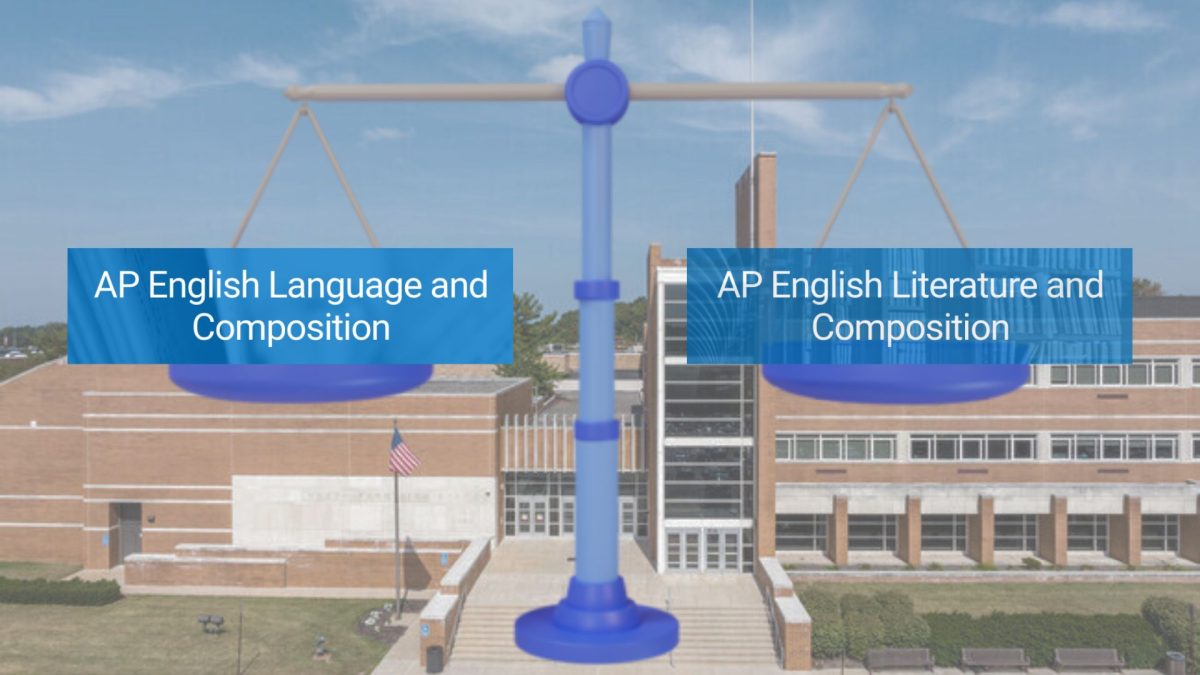Out of all of the Advanced Placement courses offered by the College Board, only two focus on the art of writing: AP Language and Composition and AP Literature and Composition. In this sense, the two courses are intertwined with each other, with many students taking both in order to build their rhetorical and literary skills. However, despite their many similarities, AP Lang and AP Lit also share numerous differences that keep them distinct from one another.
“AP Literature is the study of imaginative works of language. We study how authors of poetry, drama, and fiction create meaning and we cultivate our interpretative skills to understand that meaning,” AP Literature and Composition teacher, Mr. TJ Gillespie said.
“AP Language focuses on rhetorical analysis. We want students to be able to evaluate the content they consume by considering who wrote it, when it was written, for what purpose it was written, and how the intended audience is impacted by the author’s choices,” AP Language and Composition teacher, Mrs. Sarah Levandowski said.
When it comes to those who take the courses, the vast majority of AP Lang students go on to take AP Lit as well, creating a class of very skilled writers who already have experience with what the College Board wants from them. At North Penn High School, as estimated by its teachers, over 70% of AP Lang students go on to take AP Lit, and the remaining are honors students who skipped AP Lang and went straight to AP Lit.
Due to the difference in content focus compared to past and future English courses, AP Language teachers must take a different approach to how they teach their students. It’s easy to assume that AP Lang teachers would have to work around previous writing and analysis expectations, but in truth, they actually work alongside those past skills to create new ones.
“Students are used to analyzing what the author wrote, not why they wrote it. This is the biggest challenge students face,” Levandowski said. “It’s not about unteaching previously learned analysis skills, but teaching a new way to analyze texts.”
Although these two courses are geared mainly toward aspiring English majors, there are numerous benefits for other majors to take this class as well. Writing and analysis development only scratches the surface of the techniques taught by and needed in these classes.
“[The courses] are for any student who wants to develop skills of critical thinking and analytical writing,” Gillespie said. “In purely practical terms, colleges and future employers look for students who can think critically, handle complex texts, and communicate effectively.”
“These skills can apply beyond writing to everyday discussions had among friends and colleagues, and students leave with a better understanding of how to evaluate the information they consume beyond a novel or nonfiction text,” Levandowski said.
Unfortunately, these skills may not always come to fruition, as a handful of students who take these courses are cutting corners through the use of AI. It’s no secret that AI is an extremely useful tool in many aspects of life, but it also brings about the possibility of cheating in courses that would otherwise teach crucial literary skills.
“Teachers sometimes feel like we are engaged in an arms race with students. There are a couple of methods to combat [AI]…the most successful method, though, is to create assignments that students actually feel excited about doing, that feel meaningful to them,” Gillespie said.
“A bot can give a student answers, but a teacher can equip students with the skills they need to solve future problems,” Levandowski said.
Although teaching such challenging courses comes with inherent struggles, numerous benefits make spearheading these courses worth its while. Gillespie and Levandowski, two teachers who have been guiding students through the College Board’s curriculum for many years, believe there are more than enough positive elements in their jobs.
“Both are valuable courses that hone lifelong analysis and critical thinking skills,” Levandowski asserted.
“My favorite thing about AP Literature is the students who make up the class,” Gillespie said. “Their questions and reactions and insights…allow me to find something new every time. I may be the teacher at the front of the room, but I learn something every day.”


